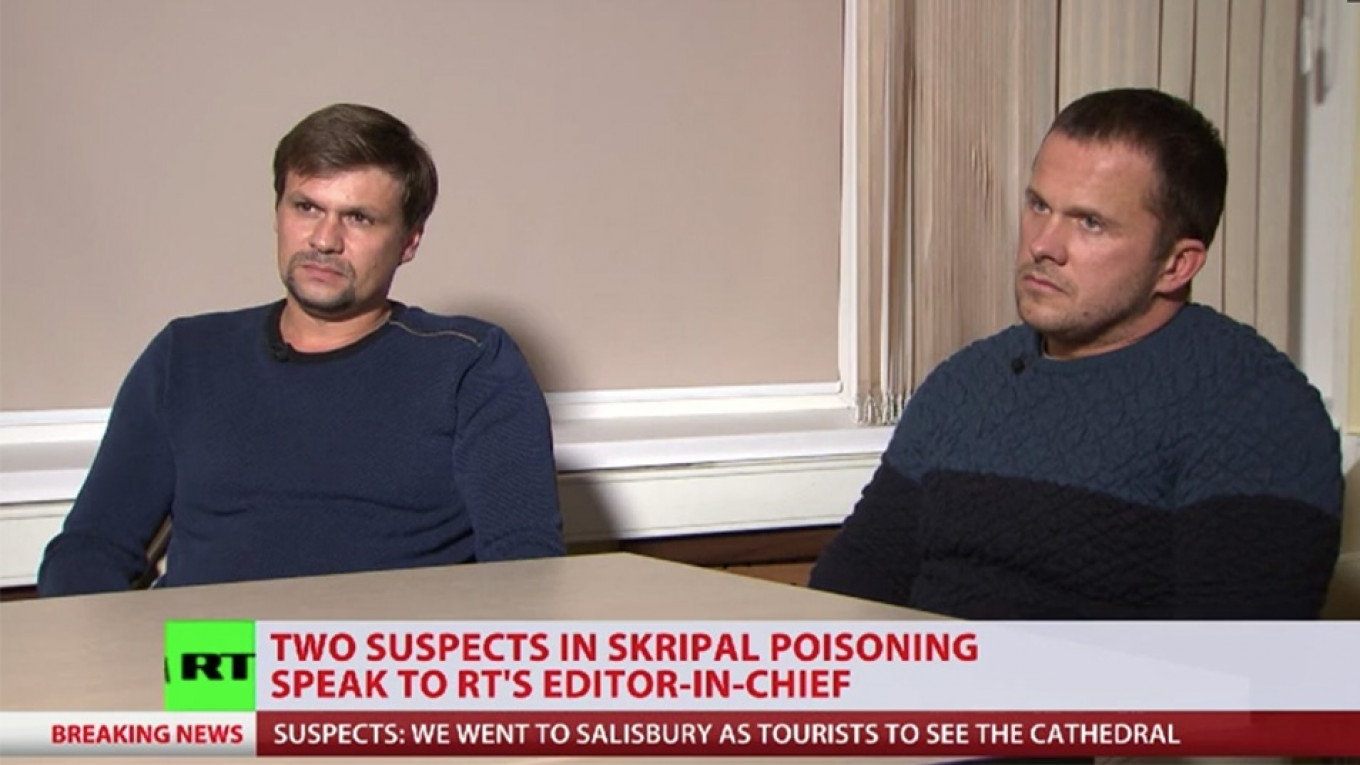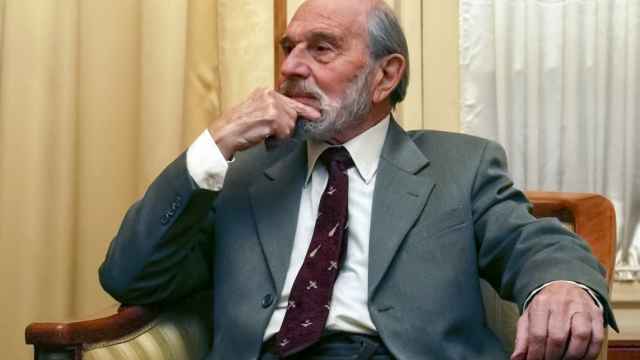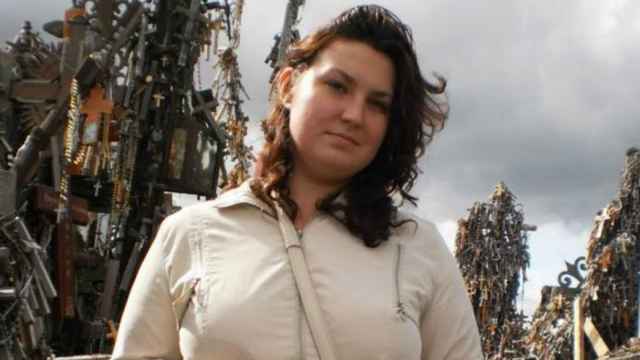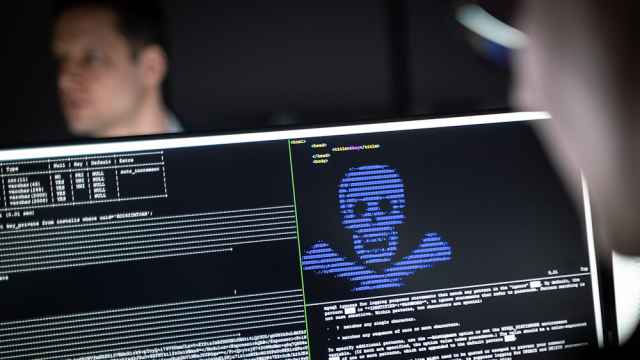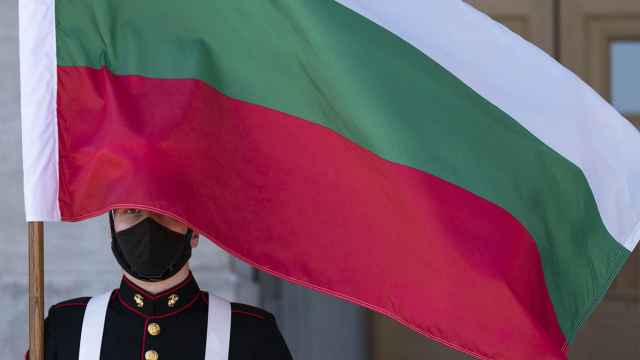Two Russians appeared on state television on Thursday, saying they had been wrongly accused by Britain of trying to murder a former Russian spy and his daughter in England and that they had visited Salisbury in March for tourism.
British prosecutors last week identified two Russians they said were operating under aliases — Alexander Petrov and Ruslan Boshirov — whom they accused of trying to poison Sergei and Yulia Skripal with a military-grade nerve agent in England.
The two men who appeared on Russia's state-funded RT television station had some physical similarities to the men shown in British police images.
"Our friends had been suggesting for a long time that we visit this wonderful town," one of the men said of the English town of Salisbury in a short clip of the interview played by RT.
They said they may have approached Sergei Skripal's house by chance but did not know where it was located. They had stayed less than hour in Salisbury, they said, because of bad weather.
Britain has said the two suspects were Russian military intelligence officers almost certainly acting on orders from high up in the Russian state. Russia has repeatedly denied any involvement in the case.
Skripal — a former Russian military intelligence colonel who betrayed dozens of agents to Britain's MI6 foreign intelligence service — and his daughter were found slumped unconscious on a bench in the English city of Salisbury in March. They spent weeks in hospital before being discharged.
The two men said they did not work for GRU, were ordinary businessmen, and the victim of what they called "a fantastical coincidence."
The duo surfaced a day after President Vladimir Putin said Russia had located Petrov and Boshirov, but that there was nothing special or criminal about them. He expressed hope they would come forward and speak publicly.
The affair returned to the headlines in July when a woman near Salisbury, Dawn Sturgess, died and her partner Charlie Rowley fell ill after Rowley found a counterfeit bottle of Nina Ricci perfume containing the Novichok nerve agent and brought it home.
A Message from The Moscow Times:
Dear readers,
We are facing unprecedented challenges. Russia's Prosecutor General's Office has designated The Moscow Times as an "undesirable" organization, criminalizing our work and putting our staff at risk of prosecution. This follows our earlier unjust labeling as a "foreign agent."
These actions are direct attempts to silence independent journalism in Russia. The authorities claim our work "discredits the decisions of the Russian leadership." We see things differently: we strive to provide accurate, unbiased reporting on Russia.
We, the journalists of The Moscow Times, refuse to be silenced. But to continue our work, we need your help.
Your support, no matter how small, makes a world of difference. If you can, please support us monthly starting from just $2. It's quick to set up, and every contribution makes a significant impact.
By supporting The Moscow Times, you're defending open, independent journalism in the face of repression. Thank you for standing with us.
Remind me later.


